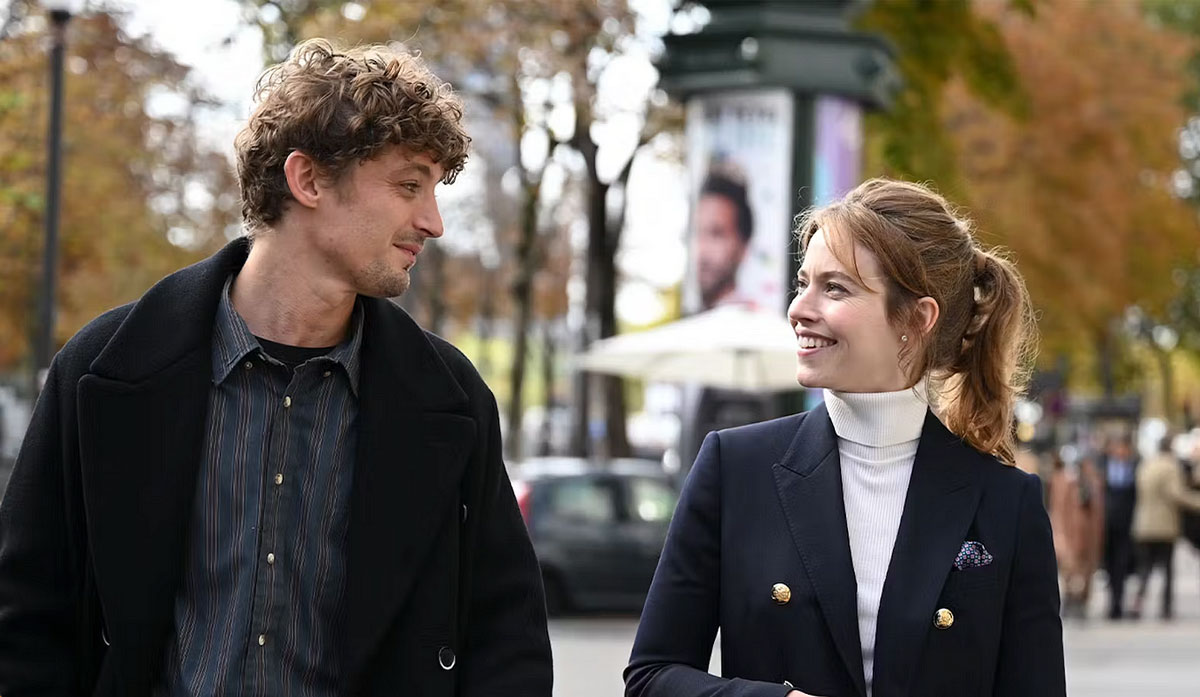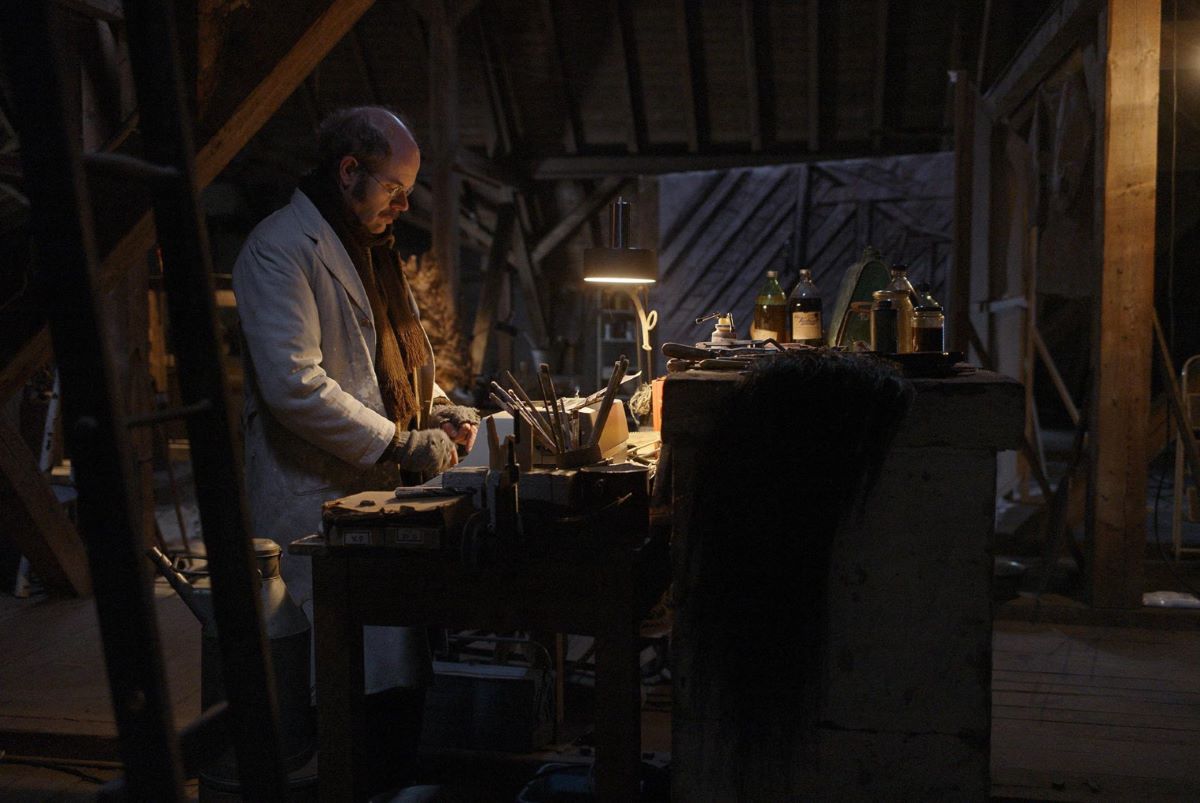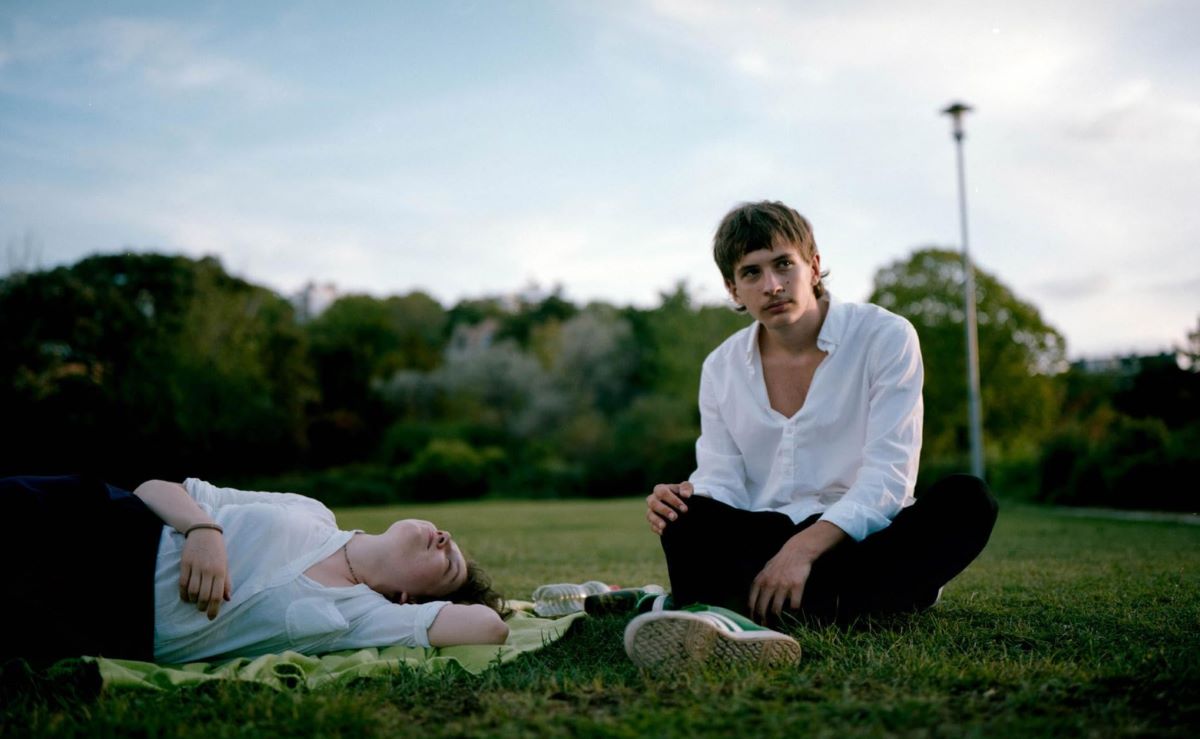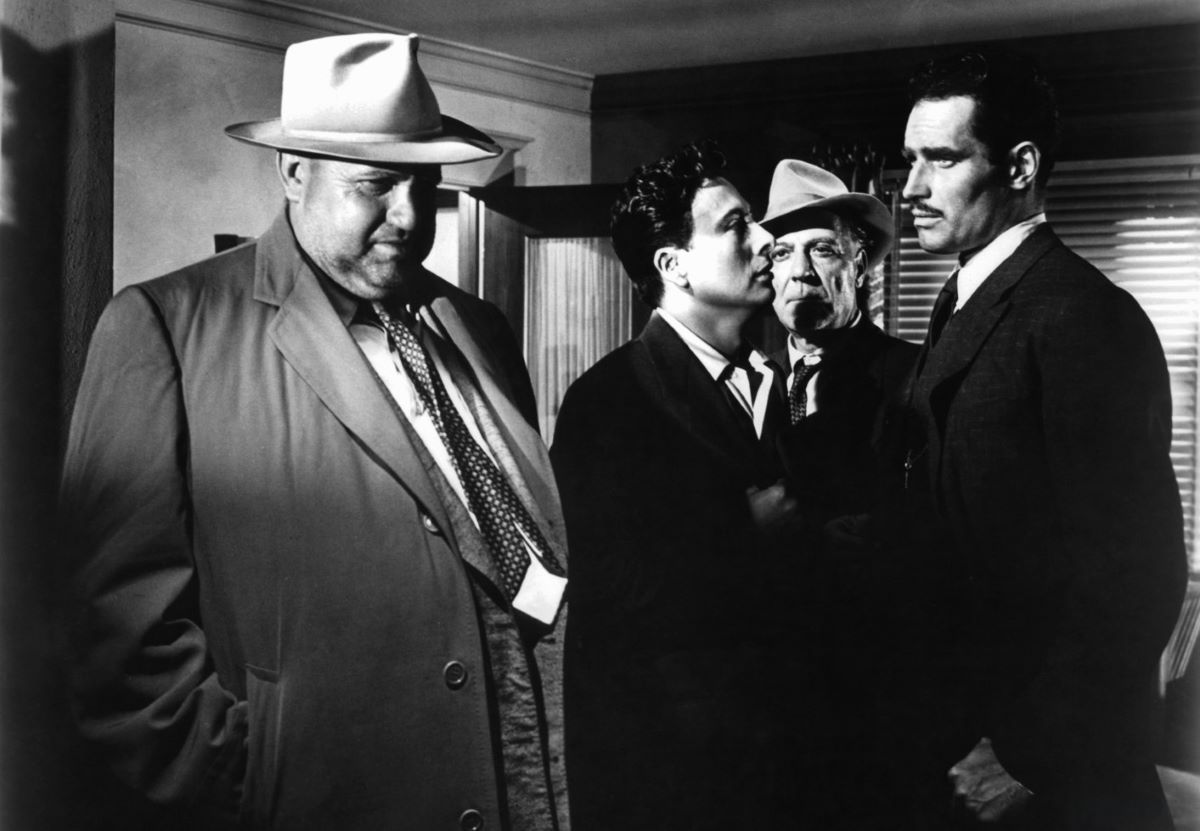A scene reminiscent of Donizetti’s L’elisir d’amore unfolds as a tennis ball gracefully dances from one court to the other, with neither racket nor player in sight—perhaps non-existent, in a complete reversal of the final scene from Blow Up (1966), where Michelangelo Antonioni had mimes playing with an imaginary ball. As the off-screen voice of Chris, the protagonist of Match Point (2005), a young Irishman who has escaped poverty through tennis, muses on the dominance of luck over talent and how everything in life eludes our control, suddenly, the ball strikes the net and hangs in suspense, not falling on either side, captured in a still frame that fades to black.
“For a moment, it can either cross over or bounce back. With a bit of luck, it crosses, and you win. Or not, and you lose.” So muses the former professional player in the film’s opening scene. In an elitist London filled with opera nights, art galleries, and high finance, he becomes, scene by scene, a social climber, a businessman, then an adulterer, and finally a murderer. Woody Allen sets the stage for the heavy conclusions drawn over the next two hours, in a noir that presents a clear and cruel theorem on Chance: since luck matters more than talent, merits, or even men’s faults, there is no justice or God in life. The guilty are not punished; on the contrary, after an initial fear and guilt, they thrive more than before, as Allen had already shown in Crimes and Misdemeanors (1989), considered by critics one of his finest works and a spiritual predecessor to Match Point, sharing plot twists and Dostoevskian echoes with explicit references to Crime and Punishment, although, in both films, arriving at conclusions opposite to those of the novel. Jonathan Rhys Meyers, a modern reinterpretation of Rodion Romanovich Raskolnikov, and Scarlett Johansson embody Allen’s distrust of the world in a bleak, anxious film where love, redemption, or a consolatory ending that relieves the audience from the discomfort of an unachieved catharsis do not exist. Despite this, or perhaps because of it, it’s among the director’s highest grossing.
For years, Woody Allen, a jazz aficionado, has indulged in variations on his beloved themes, and with his latest work, Coup de Chance, his first film shot in French, he revisits the role of luck in our lives, albeit without the darker aspects tied to moral dilemmas. If once his films were cinematic masterpieces or, even when they hit the net, still landed beyond to reveal a good movie, lately the director’s backhand has weakened, and some balls remain on his side of the court.
Fifty films written and directed in 54 years of career. The pace of a machine gun, the tirelessness of a juggernaut. But every man has a limit to his creative energy, all the more so for an artist at the dawn of his nineties, especially when he has already given so much. And just as we cannot ask him to be young again, we cannot expect him to gift us another Annie Hall (1977), nor to win another four Oscars.
The beginning of Coup de Chance is classic Woody Allen romantic comedy. Fanny Moreau (Lou de Laâge) is a young woman working at an auction house. Alain (Niels Schneider) is a writer who recognizes her after years, encountering her by chance on a Paris boulevard. Back when he was secretly in love with her, both attended a French high school in New York. Woody Allen can’t help but tenderly reference his city, irrelevant to the plot. Both have behind them disappointments and divorces. Alain is alone; she is now in her second marriage, the trophy wife of Jean (Melvil Poupaud), a wealthy businessman she believes to love. The husband seems to adore her, but treats her like a precious object. In reality, he’s a parvenu crook, in some ways a photographic negative of the Match Point protagonist. He’s infiltrated Parisian haute socièté and hides the murder of a business partner. Alain and Fanny, an autumnal Paris, their lunch break strolls, him, in an attic too well-furnished to be considered bohemian, finishing his novel – by hand, of course – on the importance of Chance and luck. Stolen time in an apparent suspension of real life. The joy of recognition and belonging, but not without unease. Jean notices Fanny becoming distracted, more absent, solitary. She smiles at him and endures tedious social obligations, which now burden her. A call on the wife’s cell phone exacerbates his suspicions. Jean then turns to a private investigator and later to two hitmen, swiftly resolving the problem in his own way, believing he has reclaimed his wife’s existence. Unable to conceive the reality, she hides the pain for a disappearance she believes due to the voluntary escape of a reconsidered lover. It will be her mother (Valérie Lemercier), a fan of Simenon’s detective novels, who senses the truth and suggests it, risking her life, as the son-in-law now knows she knows.
The Gordian knot of the story is not untied by men, not by earthly justice, much less by divine. It’s cut by Chance with a coup de théâtre, which the author, as a deus ex machina, chooses to make overtly absurd, hastily bringing a semblance of balance, punishing—a villain, yes—but with the randomness that could have claimed the life of any innocent bystander in the wrong place at the wrong time.
Today, some critics see in Coup de Chance a greater openness to embracing existence, as if the underlying vision here were less bitter compared to other similar works by Allen. It could be, but I’m not so sure to what extent: the young writer, who argues that being born and alive is equivalent to having already won a cosmic lottery, dies off-screen after less than an hour, almost as a secondary character or as in a Greek tragedy. To manage the necessary shift in protagonist in the final third of the story, the film takes a Hitchcockian turn, reminiscent of Psycho (1960). And it might not be coincidental that the film fleetingly shows a box set of the ‘Master of Suspense’s films.
Hunting rifles, auction houses and art galleries, extramarital affairs, and murders: citations, situations, and mechanisms in Coup de Chance recall other works by Allen and can only be fully appreciated or seen as shameless recycling by those familiar with them. The author portrays a bourgeoisie entrenched in luxurious but impersonal homes that adhere to television clichés, a superficial, decadent world sometimes devoid of values beyond money.
Fanny, the protagonist’s name, might be a nod to the novel by Feydeau, which shares with Madame Bovary the theme of bourgeois adultery and the year of publication in France; her surname, meanwhile, likely pays homage to the great actress Jeanne Moreau. Alain is a thinly sketched character, lasting only briefly, with the sole purpose of challenging a marriage, then to serve reheated usual reflections on Chance and Fortune before vanishing. His greatest merit may be to faintly remind one of Owen Wilson in Midnight in Paris (2011). Jean is a man who does not rely on luck but creates it. Not only is he the homo faber fortunae suae, as seems exclusively permitted to the unscrupulous powerful, able to manipulate events in their favor, but he tries to control the lives of others, just as he does with the model trains of the gigantic layout, to which he has devoted an entire room of his apartment with childish enthusiasm.
What role would Woody Allen have chosen had he acted in Coup de Chance? Probably Fanny would have had a father, who would have investigated his son-in-law’s past, not a mother, who looks like a duplicate of an irreplaceable Diane Keaton. It’s hard to say if some characters feel stereotyped due to unintentional lack in characterization or by choice, reducing to caricature that hyper-conformist society, where even a writer finds himself uttering Perugina Baci-like phrases, giving three-euro roses, poetry books, coincidentally again for three euros, and the bored wife of a cynical nouveau riche melts, as perhaps an American girl might before the verses of a poet studied in French middle schools.
Undoubtedly missing are those memorable lines, so comedic and iconic they become aphorisms still quoted today, and those sparkling dialogues, always a hallmark of his style. The tragic arc is at once perfect and predictable, like clockwork, if not for the ending, a bitter jest, crossing Jean’s fate with that of his mother-in-law, leaving viewers stunned by the rapid closure. The staging is functional but not brilliant, in its minimalism the antithesis of choices made by other greats like Martin Scorsese and Ridley Scott, who in 2023 brought to screens Killers of the Flower Moon and Napoleon. A subdued, somewhat conventional direction that favors camera angles showcasing champagne labels and car brands.
Vittorio Storaro, who has worked exclusively with Allen as cinematographer on his last five films since 2016, lights up a Paris that is neither the banlieues nor the magical city of Everyone Says I Love You (1996), nor the nocturnal, poetic city of Midnight in Paris, but a somewhat idealized, postcard-perfect city. Allen, despite his efforts to be European, sometimes makes touristy choices. The light shifts throughout the narrative: scenes with Jean lean towards blue and cold tones, while the interiors and exteriors shared by Fanny and Alain are suspended in solar reflections, warm like a cup of tea, which the viewer enjoys while listening to a selection of jazz tracks, curated as always by the director.
Among critics and audiences alike, there are those who greet this latest work of the master—possibly his last—with tears in their eyes, recognizing in it still a great film, and those who express disappointment, though not surprise, at yet another confirmation of the inevitable decline of someone who continues to present work despite having nothing new to say, speaking only to his devoted fans who, in their distorted view, would applaud him in any case. “Had I had the 15 million euros it cost to make Woody Allen’s latest film, I think I could have done better,” says the voice of Lory Del Santo among those of cinephiles, enthusiasts, and big names in criticism. Now, Coup de Chance may not have thrilled her, but the former showgirl doesn’t exactly shine for self-awareness, unless The Lady was the highly successful joke of a genius director and screenwriter who has kept us hidden her competence and good taste over the years.
To be objective, Coup de Chance does not represent a memorable page in Woody Allen’s vast filmography. It cannot stand up to the golden age, but who could? We will never again see him as the bumbling dictator of a fictional country, descend into Hades for a chat with Satan, in the hilarious parody of War and Peace, or as a frightened sperm. True, he has lost much of his enchanting brilliance, paradoxical imagination, pace, and the irreverent, absurd humor of his best dialogues, and perhaps even the courage of nostalgia. But for a man for whom, after 54 years of work, life and cinema have become indissolubly fused, the existence of one without the other is inconceivable. And for some of us, a year without a new film from him is unthinkable. Like a Christmas without the sweater grandma always knitted for you, each time with more effort, perhaps in the wrong size, with a thicker yarn year after year, in whatever color she had left at home because she no longer goes out.
Talent or luck? If you ask him which is more important, he’ll say the latter. Yet we know he’s had plenty of talent. I don’t know how much remains, but for many years, the luck has been ours.
Guido Giuliano
NoSignal Magazine, January 10, 2024






1 thought on ““Coup de Chance” Review: Allen’s Latest Explores Luck, Fate, and Familiar Themes”
Lory Del Santo is just a minor actress. Her opinion on this film is irrelevant: citing her words is a big flaw in this article.